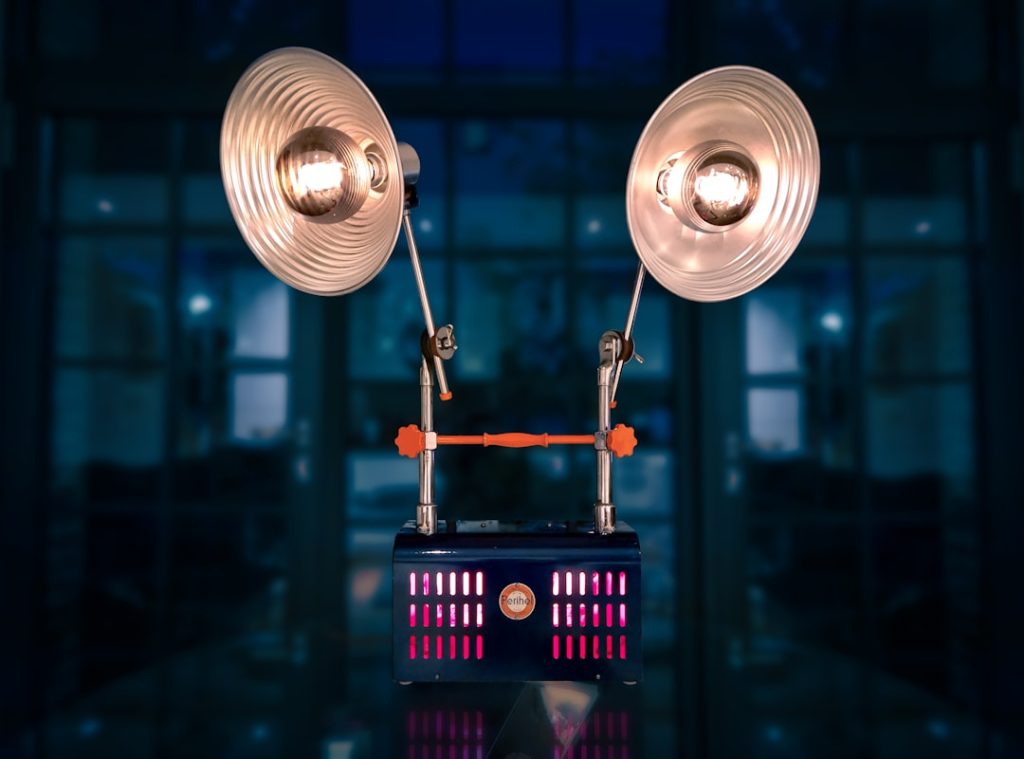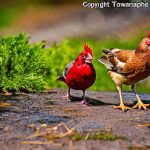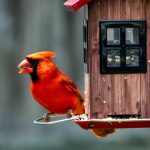Chickens, like all animals, have specific needs that must be met for them to thrive, especially during winter. Understanding these requirements is essential for ensuring the health and well-being of your flock. In winter, chickens need a warm and dry environment to protect them from cold and damp conditions.
They also require access to fresh water and a balanced diet to maintain their energy levels and overall health. It’s crucial to monitor their health closely during this time, as they may be more susceptible to illness in colder weather. Chickens are particularly sensitive to cold temperatures due to their limited ability to regulate body temperature compared to mammals.
They rely on their environment to provide the warmth necessary for comfort and health. In winter, it’s important to provide chickens with a well-insulated shelter free from drafts. This helps keep them warm and dry, reducing the risk of illness and stress.
Access to fresh, unfrozen water is critical, as dehydration can be a serious issue in cold weather. Adjusting their feeding habits to provide extra energy for warmth is also necessary during winter months. By addressing these needs, chicken owners can ensure their flock remains healthy and comfortable throughout the winter season.
Table of Contents
- 1 Providing proper shelter and insulation
- 2 Ensuring access to fresh water
- 3 Supplementing with additional heat sources
- 4 Adjusting feeding habits for winter
- 5 Monitoring the health of your chickens
- 6 Preparing for extreme weather events
- 7 FAQs
- 7.1 What are the best ways to keep chickens warm in Canadian winter?
- 7.2 How can I insulate my chicken coop for winter?
- 7.3 Is it safe to use heat lamps or heaters in the chicken coop?
- 7.4 What should I feed my chickens to help keep them warm in winter?
- 7.5 How can I ensure my chickens have access to fresh water in winter?
Key Takeaways
- Chickens need a draft-free and well-insulated shelter to stay warm in winter
- Ensure access to fresh, unfrozen water at all times to keep chickens hydrated
- Supplement with additional heat sources such as heat lamps or heated perches
- Adjust feeding habits to provide extra nutrients and energy for warmth
- Monitor the health of chickens regularly and be prepared for extreme weather events
Providing proper shelter and insulation
Insulating the Coop
A well-insulated coop is crucial for keeping your chickens warm and dry during the winter months. This reduces the risk of illness and stress, as chickens can maintain their body temperature more easily. Ensure that the coop is free from drafts, as even small ones can make it difficult for chickens to stay warm.
Bedding and Cleaning the Coop
Providing plenty of bedding, such as straw or wood shavings, helps to keep the coop warm and dry, creating a comfortable environment for your flock. Regularly cleaning the coop is also essential to remove any moisture or droppings that could contribute to damp conditions.
Providing a Secure Outdoor Run
In addition to a well-insulated coop, it’s vital to provide your chickens with a secure outdoor run that is protected from the elements. This allows them to get some fresh air and exercise while being shielded from harsh winds and cold temperatures. Consider providing a windbreak, such as a tarp or plastic sheeting, to further protect your chickens.
By providing proper shelter and insulation, you can help ensure that your chickens remain warm and healthy throughout the winter months.
Ensuring access to fresh water

Access to fresh water is crucial for chickens at all times of the year, but it becomes even more important in winter when temperatures drop and water sources are at risk of freezing. Chickens need water to stay hydrated, regulate their body temperature, and aid in digestion. Dehydration can lead to serious health issues for chickens, so it’s essential to ensure that they have access to fresh water at all times.
To prevent water from freezing, there are several options available. Heated waterers are a popular choice, as they are designed to keep water at a consistent temperature, preventing it from freezing. Another option is to use heated bases or heated pads underneath the waterers to keep them from freezing.
Some chicken owners also opt for insulating their waterers with foam or other materials to help retain heat. It’s important to regularly check the waterers throughout the day to ensure that they have not frozen over. In addition to preventing freezing, it’s important to keep the water clean and free from contaminants.
Regularly cleaning and refilling the waterers will help to ensure that your chickens have access to fresh, clean water at all times. By taking these steps, you can help to ensure that your chickens remain hydrated and healthy throughout the winter months.
Supplementing with additional heat sources
In some cases, providing proper shelter and insulation may not be enough to keep your chickens warm in extreme cold temperatures. In these situations, supplementing with additional heat sources can help to provide your flock with the warmth they need to stay comfortable and healthy. There are several options available for providing supplemental heat in the coop, including heat lamps, radiant heaters, and heated perches.
Heat lamps are a popular choice for providing supplemental heat in chicken coops. They are designed to emit warmth without producing too much light, which can disrupt the chickens’ natural sleep patterns. It’s important to securely hang heat lamps at a safe distance from any flammable materials and ensure that they are out of reach of curious chickens.
Radiant heaters are another option for providing supplemental heat in the coop. These heaters work by radiating heat directly onto the chickens, providing a gentle warmth without drying out the air. Heated perches are another option for providing supplemental heat in the coop.
These perches are designed to provide warmth directly to the chickens’ feet, helping to keep them warm during cold nights. It’s important to carefully monitor the temperature in the coop when using supplemental heat sources, as overheating can be just as dangerous as cold temperatures for chickens. By supplementing with additional heat sources when necessary, you can help to ensure that your chickens remain warm and healthy throughout the winter months.
Adjusting feeding habits for winter
Feeding habits should be adjusted for chickens in winter to provide them with the extra energy they need to stay warm and healthy. In colder temperatures, chickens require more energy to maintain their body temperature, so it’s important to provide them with a balanced diet that meets their nutritional needs. This may include increasing their daily feed intake or supplementing their diet with high-energy treats.
One way to adjust feeding habits for winter is by increasing the amount of feed provided to your chickens. This can help to ensure that they are getting enough energy to stay warm and maintain their overall health. It’s important to provide a balanced diet that includes a mix of grains, protein, vitamins, and minerals to meet their nutritional needs.
Additionally, supplementing their diet with high-energy treats such as black oil sunflower seeds or mealworms can help to provide them with an extra boost of energy during colder weather. It’s also important to regularly check their feeders throughout the day to ensure that they have an adequate supply of food. Chickens may eat more frequently in colder temperatures, so it’s important to monitor their feed intake and adjust accordingly.
By adjusting feeding habits for winter, you can help to ensure that your chickens have the energy they need to stay warm and healthy throughout the season.
Monitoring the health of your chickens

Why Winter Health Checks are Crucial
Cold temperatures can weaken your chickens’ immune systems, making them more susceptible to respiratory infections and other health issues. Regular health checks are essential to identify any potential problems early on.
Observing Behavior and Appearance
One way to monitor your chickens’ health is by observing their behavior and appearance. Healthy chickens should be active and alert, with bright eyes and clean feathers. Any changes in behavior or appearance, such as lethargy, droopy wings, or discolored comb or wattles, may indicate that they are not feeling well.
Checking Droppings and Inspecting for Illnesses
Regularly checking your chickens’ droppings can provide valuable insight into their health. Healthy droppings should be firm and well-formed, with a dark brown color. Any changes in color or consistency could indicate an underlying health issue. It’s also important to regularly inspect your flock for signs of respiratory issues or other illnesses, such as coughing, sneezing, wheezing, or nasal discharge. If you notice any of these symptoms, it’s essential to isolate any sick birds and seek veterinary care if necessary.
By monitoring the health of your chickens closely, you can catch any potential issues early and take steps to address them before they become more serious.
Preparing for extreme weather events
Extreme weather events such as blizzards or ice storms can pose serious risks for chickens in winter. It’s important to be prepared for these events in order to protect your flock from harm. One way to prepare for extreme weather events is by ensuring that your coop is secure and well-insulated.
This will help to protect your chickens from harsh winds and cold temperatures. It’s also important to have a plan in place for providing food and water during extreme weather events. Stocking up on extra feed and ensuring that you have a supply of fresh water on hand can help to ensure that your flock has access to essential resources during a storm.
In addition, it’s important to have a plan for keeping your chickens safe during extreme weather events. This may include bringing them indoors if necessary or providing additional shelter in the form of tarps or plastic sheeting. Finally, it’s important to have an emergency plan in place in case of power outages or other unforeseen circumstances.
This may include having a backup generator on hand or making arrangements with neighbors or friends who can help in an emergency. By preparing for extreme weather events in advance, you can help to ensure that your flock remains safe and healthy during the winter months.
If you’re looking for more tips on keeping your chickens warm in the Canadian winter, you might want to check out this article on choosing the right size for your chicken coop door. Ensuring that your coop is properly insulated and that the door is the right size can make a big difference in keeping your chickens comfortable during the cold winter months.
FAQs
What are the best ways to keep chickens warm in Canadian winter?
In Canadian winters, it is important to provide proper insulation for the chicken coop, use heat lamps or heaters, and ensure the chickens have access to fresh water and a well-balanced diet to help keep them warm.
How can I insulate my chicken coop for winter?
Insulate the chicken coop by using materials such as straw, hay, or wood shavings on the floor, sealing any drafts, and adding insulation to the walls and ceiling. This will help retain heat and keep the chickens warm.
Is it safe to use heat lamps or heaters in the chicken coop?
It is safe to use heat lamps or heaters in the chicken coop as long as they are installed properly and kept away from flammable materials. It is important to use heat lamps specifically designed for use in a coop and to follow all safety guidelines.
What should I feed my chickens to help keep them warm in winter?
In winter, it is important to provide a well-balanced diet for the chickens, including high-quality feed, grains, and access to fresh water. This will help keep them healthy and maintain their body temperature.
How can I ensure my chickens have access to fresh water in winter?
To ensure the chickens have access to fresh water in winter, use heated waterers or regularly check and replace frozen water with fresh, warm water. It is important to prevent dehydration, as water is essential for regulating body temperature.
Meet Walter, the feathered-friend fanatic of Florida! Nestled in the sunshine state, Walter struts through life with his feathered companions, clucking his way to happiness. With a coop that’s fancier than a five-star hotel, he’s the Don Juan of the chicken world. When he’s not teaching his hens to do the cha-cha, you’ll find him in a heated debate with his prized rooster, Sir Clucks-a-Lot. Walter’s poultry passion is no yolk; he’s the sunny-side-up guy you never knew you needed in your flock of friends!







